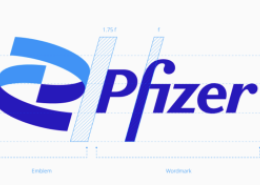Pfizer Japan Receives Manufacturing and Marketing Authorization for SUTENT
For the Treatment of Two Difficult-to-Treat Advanced Cancers
(BUSINESS WIRE)--Pfizer Japan Inc announced that on April 16, the company received an approval for the manufacturing and marketing authorization of the anti-tumor drug/kinase inhibitor “SUTENT® Capsule 12.5 mg” (sunitinib malate) indicated for Gastrointestinal Stromal Tumor (GIST) after failure of imatinib treatment due to resistance and for Renal Cell Carcinoma (RCC) not indicated for curative resection and Metastatic Renal Cell Carcinoma.
Sutent is a new oral-dose anti-tumor drug referred to as a kinase inhibitor, and a low-molecular-weight compound capable of selectively inhibiting the tyrosine kinase receptor involved in tumor growth and vascularization. In the treatment of renal cell carcinoma, Sutent suppresses the growth primarily by inhibiting the intracellular signal transduction related to the vascular endothelial growth factor receptor (VEGFR) and the platelet derived growth factor receptor (PDGFR). It also suppresses the growth of GIST primarily by inhibiting the intracellular signal transduction related to PDGFR-α and KIT (CD117).
In a phase III clinical study involving patients with GIST resistant to imatinib (a drug previously approved for use in GIST treatment) and patients with metastatic GIST who could not tolerate imatinib, the median time to tumor progression was significantly longer in the Sutent treated group (27.3 weeks) than in the placebo group (6.4 weeks). In another phase III clinical study designed to determine a drug of first choice for the treatment of advanced RCC, patients with RCC who had received no prior drug therapy were treated either with interferon-α (IFN-α; an existing standard drug for the treatment of this disease) or Sutent. The median progression-free survival period in the Sutent treated group and IFN-α treated group were 47.3 weeks and 22.0 weeks, respectively. Furthermore, the response rate to Sutent therapy was 5 times higher than that in the IFN-α group (27.5% vs 5.3%). The efficacy and tolerability of this drug in Japanese patients have been demonstrated in domestic phase I and II clinical studies.
As part of the approval for the manufacturing and marketing authorization of this drug, the Japanese regulatory authority made it obligatory for Pfizer Japan to conduct a post-marketing survey, covering all patients treated with the drug, until data from a certain number of cases will be collected, in order to collect data on the safety and efficacy of the drug as soon as possible and to take necessary measures to ensure appropriate use of the drug.
To assure safety of patients receiving treatment with Sutent and to facilitate its proper use, Pfizer Japan Inc will distribute this drug only to facilities and physicians satisfying the requirements planned to be prepared and will conduct a special survey in which all patients treated with this drug will be enrolled. We will ensure proper use of the drug by these means. Furthermore, we will undertake campaigns addressed to physicians who prescribe this drug so that each patient and his/her family members are well informed of the efficacy and safety of the drug and the physician begins treatment with this drug after informed consent has been obtained from each patient.
Sutent was approved in January 2006 in the USA. To date, it has been approved in more than 75 countries worldwide, including several countries in Europe. The use of Sutent is recommended by the “Guidelines on Treatment of GIST and RCC” prepared by the National Comprehensive Cancer Network (NCCN), USA. In Japan, an application for approval of Sutent was filed in December 2006 with the Ministry of Health, Labour and Welfare, and it has just been approved.
- What is gastrointestinal stromal tumor (GIST)?
GIST is a type of tumor affecting the stroma of the digestive tract. About 90% of all cases with this tumor involve c-kit gene mutations. In the U.S.A., this tumor is estimated to develop in 4,500-6,000 individuals each year. In Japan, the number of patients with inoperable or recurrent GIST indicated for this drug is estimated to be about 500-750 per year.
- What is renal cell carcinoma (RCC)?
About 85% of all kidney cancers are renal cell carcinomas (adenocarcinomas) developing in the proximal tubule of the renal parenchyma. RCC often develops in the latter half of 50s, with the male/female incidence ratio being approximately 2:1. In Japan, the number of patients with inoperable or metastatic RCC indicated for this drug is estimated to be about 2,500-3,000. With extensive use of CT scans and abdominal ultrasonography, the number of RCC cases detected at early stages has been increasing in recent years.
Outline of SUTENT®
Product name: SUTENT® Capsule 12.5 mg
Generic name: Sunitinib malate
Date of manufacturing authorization: April 16, 2008
Production and distribution by: Pfizer Japan Inc.
Indications:
- Gastrointestinal Stromal Tumor after failure of imatinib treatment
- due to resistance
- Renal Cell Carcinoma not indicated for curative resection
Metastatic Renal Cell Carcinoma
Dosage and administration:
The usual adult dosage for oral sunitinib is 50 mg once daily, 4 weeks on followed by 2 weeks off (Schedule 4/2). This comprises 1 treatment cycle, which may be repeated.
The dosage may be decreased according to the patient’s clinical condition.
Pfizer Inc
Vanessa Aristide, 212-733-3784
or
Jennifer Davis, 212-733-0717








